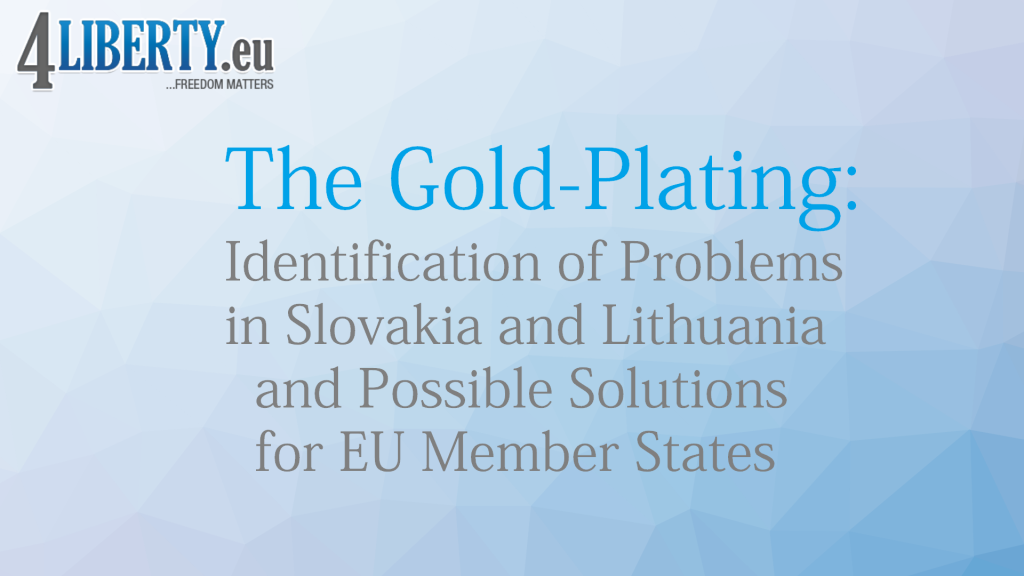We have the pleasure the present you the second of the series of our policy papers that we will be publishing in the near future. The publication discusses the issue of Gold-plating – the process where an EU directive is given additional powers when being transposed into the national laws of member states – on the basis of two EU member states: Slovakia and Lithuania. Enjoy your reading!
Introduction
One of the most pressing issues facing the European economies is the growing unemployment that has been at the forefront of social and political unrests sweeping through many of the formerly stable countries. The European Union has thus set as one of its key priorities a support of the economic growth and employment and the creation of a better business environment. In order to achieve this, the European Union has been predominantly interested in securing a unified set of business regulations that would be applicable across the economic area. This policy paper is focused on the problems connected with implementation of the EU legislation within national states and deals with a phenomenon of Gold-plating, which occurs in the process of the adoption of the European legislation in the EU member states. The term itself primarily refers to an increased level of regulatory burden that is adopted at the national level beyond the minimum requirements of the EU legislation.
This paper works with the definition of Gold-plating and presents approaches adopted by the United Kingdom and Sweden and brings in two case studies, in which it explains the struggles with this phenomenon currently ongoing in Slovakia and Lithuania. These countries were chosen as the examples of the new EU countries and in contrast to the examples set previously by ‘old Europe’. due to the increasing impact of the European decision-making the impact of the improper implementation can have a detrimental effect on the businesses and it is for this reason that the United Kingdom and Sweden have been active in identifying and tackling the main issues to provide a better framework that would minimise the impacts of Gold-plating. The Slovak and Lithuanian cases can provide a good insight into the main struggles happening in the region of Central and Eastern Europe.
Download the full publication in pdf here: Gold_Plating



